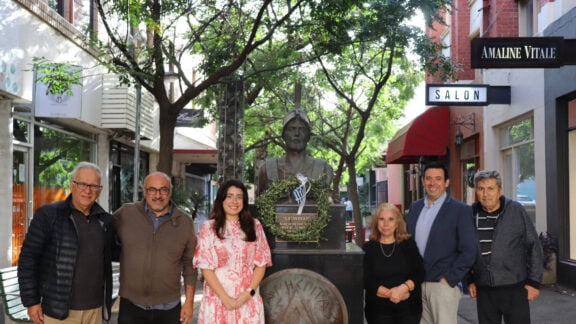Kimberly Guilfoyle, nominee for US Ambassador to Greece, fronted the American Senate as she stressed the important relationship between the US and Greece relations and improving Greece-Turkey relations, with a new tension emerging in relation to scientific research in the Aegean.
Guilfoyle addressed numerous topics during her Senate confirmation hearing for the post of U.S. Ambassador to Greece, including answering senators’ questions focusing on Greece–Turkey relations, the F-35 program, and the role of Russia, as reported by Ap.
She noted that her approach as US Ambassador to Greece would focus on stability and strengthening strategic partnerships in the region.
Guilfoyle emphasized that her priority would be deepening trilateral cooperation between the U.S.–Greece–Israel and the U.S.–Greece–Cyprus, stressing that these are “pillars of stability” in the Eastern Mediterranean.
“If my nomination is confirmed, I will do everything in my power to strengthen these relationships,” she said.
She also praised Greece’s contribution to NATO, saying it ranks among the top five countries globally in meeting Alliance defence spending targets.
Guilfoyle’s Senate confirmation hearing comes amid another tension between Greece and Turkey, following a new episode in the ongoing NAVTEX (Navigational Telex) exchange between the two countries.
The latest issue centres around the Northern Aegean, caused by a dispute regarding scientific research activities by the Greek research vessel FILIA.
Reports state Greece issued a NAVTEX on 5 July announcing the conduct of scientific research by FILIA in the area between the islands of Lemnos and Samothrace, scheduled to take place from 4-15 July.
According to international maritime norms, such research activities do not require permission from coastal states, but only a formal announcement to ensure the safety of navigation.
Turkey issued its own NAVTEX on 7 July, however, falsely claiming that part of the area covered by the Greek announcement lies within Turkey’s continental shelf.
In the same notice, Ankara stated that any research activities in areas under Turkish maritime jurisdiction must be coordinated with Turkish authorities.
Turkey is once again asserting its broader stance that any activity outside territorial waters must align with its interpretation of maritime jurisdiction – an interpretation that diverges from international maritime law.
At the same time, it directly challenges Greece’s rights to a continental shelf in the disputed area.
It is the latest incident in a long line of maritime-related tensions between the two NATO allies, with ongoing disagreements over jurisdiction, sovereignty, and the application of international law in the Aegean and Eastern Mediterranean.
Guilfoyle is hopeful to help resolve tensions such as this if confirmed as US Ambassador to Greece, while also saying:
“If confirmed, it will be a priority for me to further accelerate the modernization of Greek defence.”
Guilfoyle also addressed the subject of energy, referencing the LNG terminal in Revithoussa and the floating FSRU unit in Alexandroupoli, which facilitate the export of American natural gas to Europe.
She highlighted that the US already covers 20 per cent of the Greek gas market, which is up from just 2 per cent five years ago.
“If my nomination is confirmed, I will work with Greece to commercially develop investments in key natural gas pipelines, such as the so-called ‘Vertical Corridor’ connecting Greece with Bulgaria, Romania, Moldova, Ukraine, and Central Europe,” she said.









